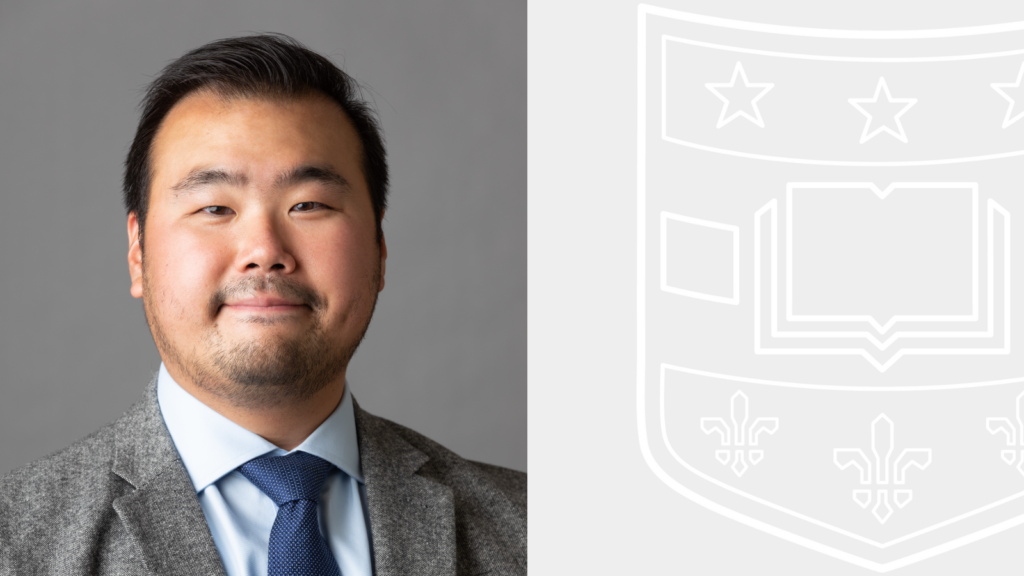Peter Kang, MD, MSCI, came to Washington University School of Medicine in St. Louis for his neurology residency in 2012 and felt like he’d found a home. So, he moved on to a fellowship in neurocritical care and joined the Department of Neurology’s faculty afterwards where he has spent his time caring for patients, teaching and conducting funded clinical and translational research.
“Disorders of the nervous system affect the most fundamental parts of us: our personalities, how we perceive the world around us, our ability to move, among others. It’s a true privilege that our patients entrust us to care for them through what might be the worst time of their lives,” Kang said. “Being a great neurologist takes not only a combination of skilled diagnostic reasoning and decisive management but also compassion and empathy. It’s first and foremost the patients who drive my energy and ambition as a neurologist. They change us as physicians and stay a part of us even after we are no longer caring for them. It is my goal to give the residents these formative patient care experiences that mold their development as future physician leaders.”
After joining the core faculty, Kang has spent considerable time and effort working with the residents and leadership to not only make the program run smoothly amidst challenges such as the COVID-19 pandemic but also to improve it with ongoing curricular development. While a national search was ongoing to identify and install a new program director to succeed Joy Snider, MD, PhD, Kang joined the interim leadership team, serving as associate program director.
“Working with the residents is one of the highlights of my career here at WashU,” Kang said. “They are smart, hardworking and full of energy and creativity. They keep me on my toes and challenge me in ways that make me grow as a physician and educator. I find myself learning from them all the time. Spending time with them makes me feel reassured the future of neurology is bright.”
Kang is set to take on the role of adult residency program director, starting March 1, 2023. In this new role, he said he will build off of the strong historical foundation of the program, continuing to adapt it to be at the forefront of neurology residency training.
He thanked his predecessors, Renee Van Stavern, MD, and Snider for pouring “their hearts and souls into the program,” making it the powerhouse training program it is today. “I am so thankful for all that they have done. Their legacy is evident in all the wonderful work our graduates are doing in their careers.”
Get to know Kang a little more
- What is your favorite thing about WashU?
There are many things that make Washington University a special place. While clinical volume, research funding and infrastructure are all important, it is the people and culture that matter most. Washington University embodies camaraderie, collaboration and mentorship. We invest in the future careers of our trainees. - Favorite thing about St. Louis?
St. Louis is a wonderful place to live. We have all the amenities and attractions of a larger city and yet are in such a livable space. The city has changed significantly even in my time here, and I am excited for what’s to come. One of my favorite places in St. Louis is Tower Grove Park and the surrounding area. It is not as well known to visitors compared to its more well-known counterpart, Forest Park, but is a great place to spend time outdoors in the city whether it is exercising, having a picnic in one of the many pavilions with friends and family or strolling through the Saturday morning farmer’s market. - Is there anything else you would like everyone to know?
We are in an exciting era right now. New diseases are being discovered that are changing the landscape of clinical neurology. Similarly, there is an increasingly rapid rate of development of effective therapeutics for diseases once thought untreatable. This, in many ways, makes training in neurology more challenging but also exciting. I have no doubt our residents will grow into leaders that push the field forward, and I am so excited to see the future careers of our trainees unfold.
